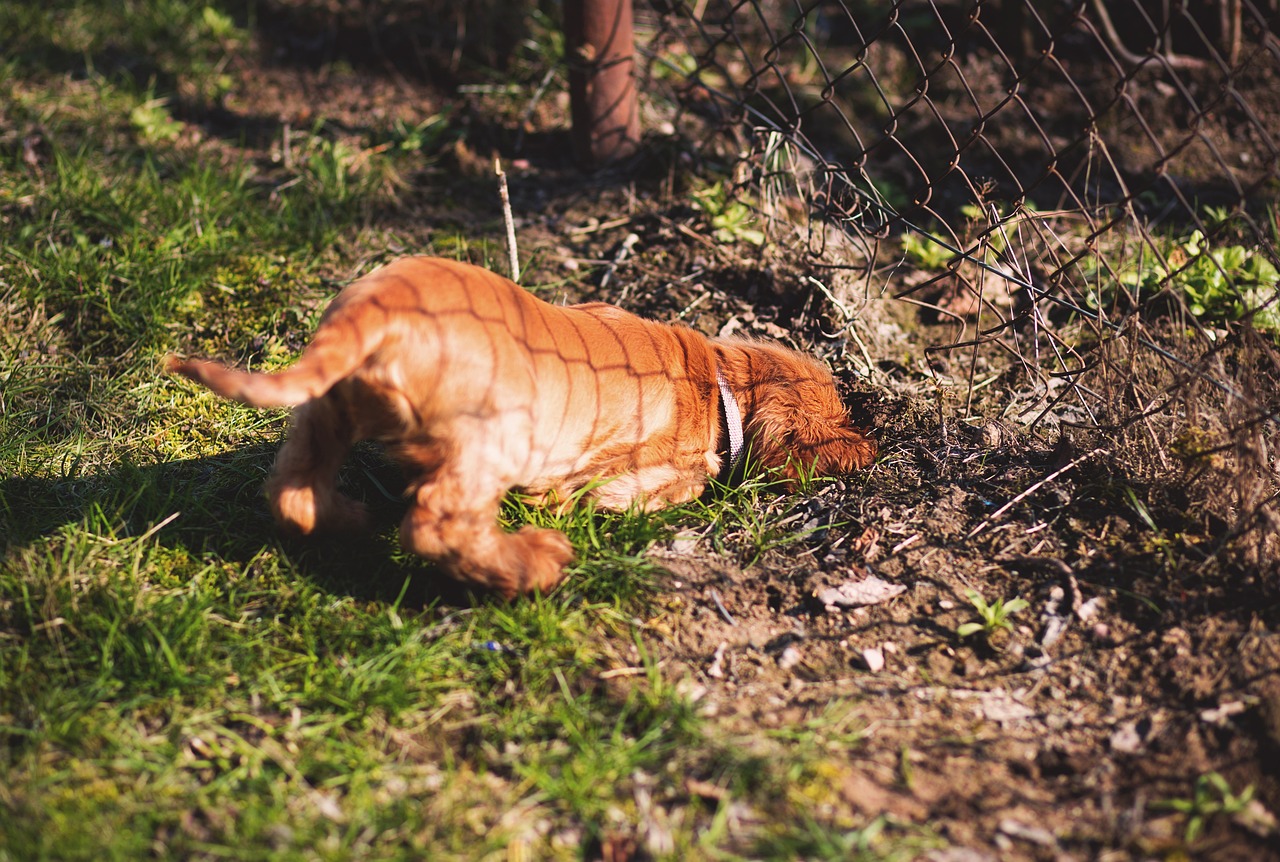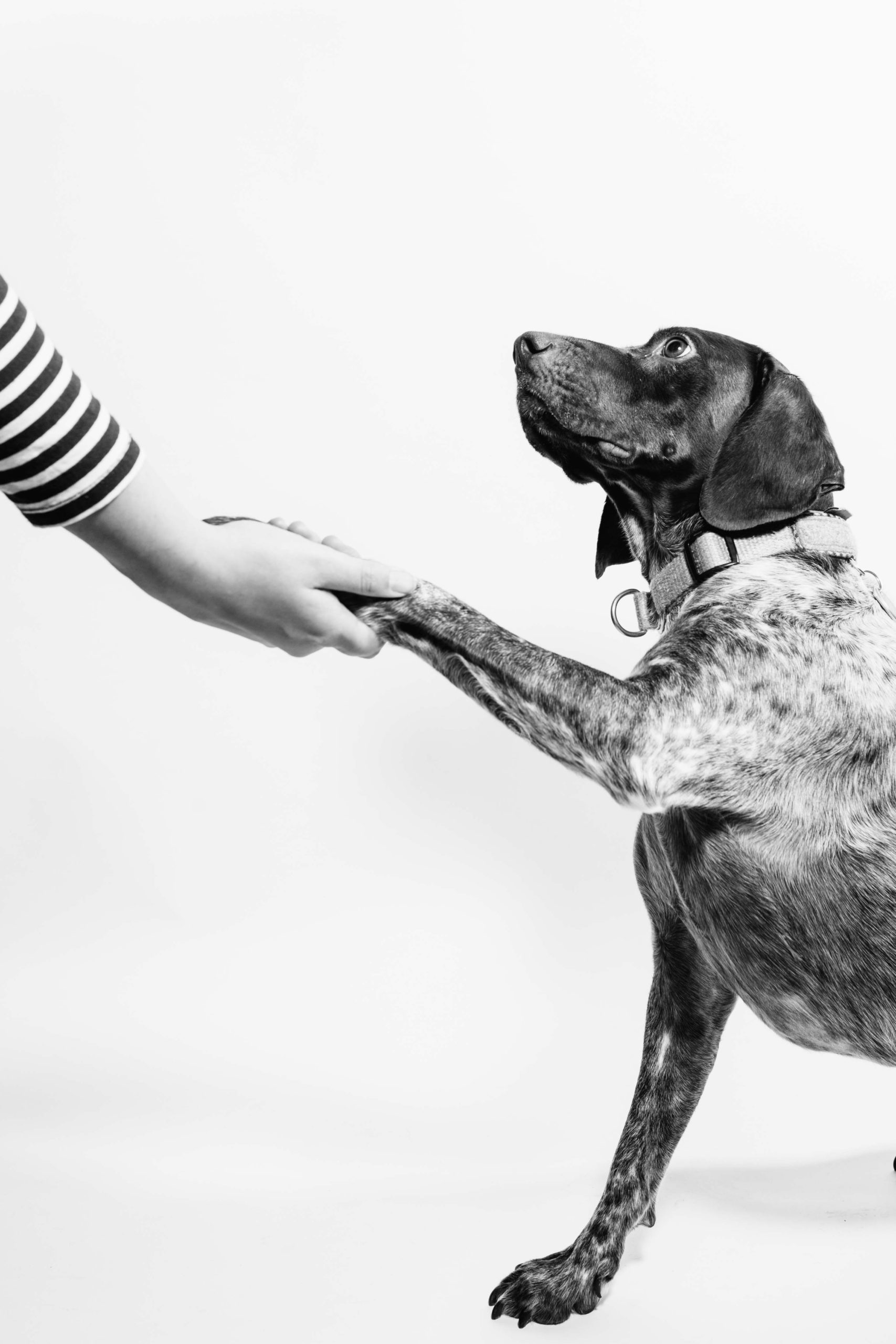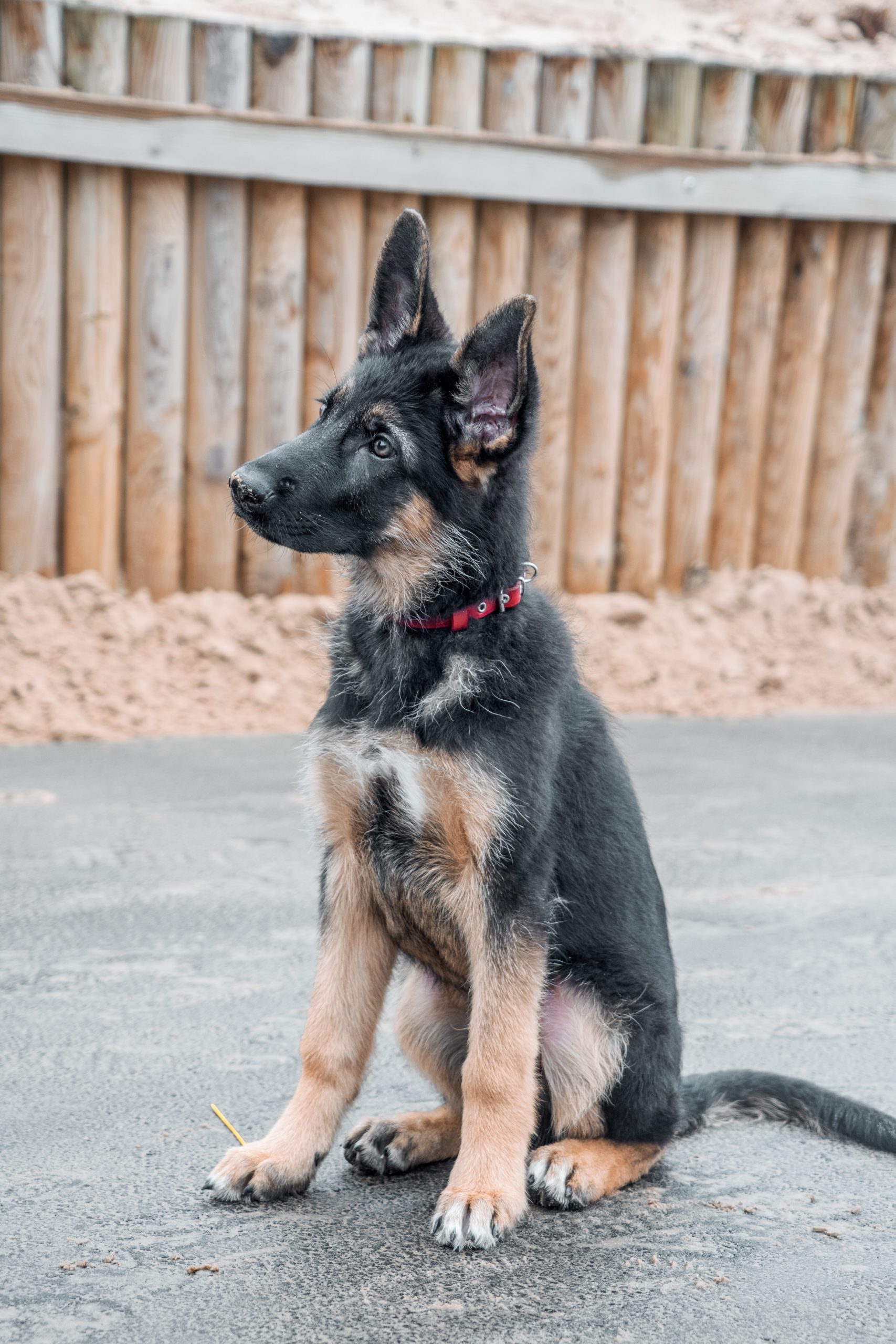Have you found yourself coming home to a backyard that looks like it’s been through a warzone? Do you dread peeking out the window to check on your furry friend, only to find a new hole in the ground? If you’re nodding your head in agreement, it’s time to take action and learn how to stop your dog from digging.
We all love our pets, but there’s no denying that digging is a frustrating and destructive behavior that can leave us feeling helpless and at our wit’s end. But fear not! With the right tips and tricks, you’ll be able to put an end to digging and restore your backyard to its former glory.
So, let’s dig into the topic (no pun intended) and discover the best ways to stop a dog from digging.
Use bad smells to deter digging
One way to deter dogs from digging is to use bad smells. The smell of dog poop, citrus, or vinegar has been effective in deterring dogs from digging.
You can sprinkle these scents in the areas where your dog likes to dig. Keep in mind that it’s important to find a balance between creating a bad scent and not harming your dog’s health. For instance, some plants like cayenne pepper and mothballs are toxic to dogs and should be avoided.
Additionally, it’s important to note that this solution may not work for all dogs and may not address the underlying reason for digging. It’s always important to spend time with your dog, ensure they get enough exercise, and provide mental stimulation.
If your dog is still digging despite these interventions, it may be helpful to consult with a professional dog trainer or veterinarian for additional guidance. [1][2]
Block off access to digging areas
One of the easiest ways to stop a dog digger is to block off their access to their favorite digging spot. This ensures that they cannot reach the area where they love to dig. Depending on the size and layout of the yard, the pet owner can use different methods to fence off the area.
For instance, they can attach patio fencing to posts with zip ties, which sections off part of the yard. Another option is to purchase an outdoor baby gate for the porch steps to prevent the dog from accessing the grass below.
Fencing is a popular choice for many pet owners, however, those on a budget may use low garden boundaries or chicken wire to fence off areas. If the dog is still getting out of these small fences, consider using a big dog crate or a playpen to restrict their movement. These methods will help stop the dog from accessing their digging area and help to maintain a beautiful yard. [3][4]
Provide a designated digging area
For owners who are struggling to stop their dogs from digging, providing a designated digging area can be a helpful solution. This way, the dog can fulfill their natural urge to dig without damaging the surrounding plants and landscapes.
To create a digging area, pet owners can choose a specific spot in their yard and loosen the soil. They can bury toys, treats, or bones in the designated area to encourage their dogs to dig there. When the dog starts digging in other areas, pet owners can guide them to the designated area and praise them for digging there.
Besides, pet owners should ensure that the digging area is away from any areas that they don’t want their dog to damage. It is important to note that providing a designated digging area does not mean that pet owners should allow their dogs to dig anywhere they want.
Instead, pet owners should ensure that their dogs differentiate between the digging area and other areas of the yard. With this approach, pet owners can satisfy their dog’s natural urge to dig while protecting their yards. [5][6]
Use physical barriers such as rocks or chicken wire
One effective way to stop a dog from digging is to use physical barriers like rocks or chicken wire. This method involves placing a barrier in the areas where the dog frequently digs, such as a garden or flower bed.
By doing this, the dog will be unable to access the dug-up areas, thereby eliminating the risk of damage. Rocks can be strategically placed to create a barrier that is not only effective but also visually appealing.
Chicken wire, on the other hand, can be placed in the soil before planting to deter the dog from digging. Additionally, chicken wire can also be placed over soil areas to keep the dog from digging. However, it is essential to ensure that the fence or wire is secure to prevent the dog from finding a way around it.
Physical barriers are an effective solution for dogs that regularly dig in specific areas. By using these barriers, the dog will no longer be able to dig up those areas, making it easier to keep the yard looking tidy. [7][8]
Increase exercise and mental stimulation
Increasing dogs’ exercise and mental stimulation can be a great way to stop them from digging. Boredom is a common cause of digging, so making sure your dog is getting enough physical and mental activity can help to reduce this behavior.
Consider taking your dog for daily walks, runs, or playtime, or setting up an agility course or game of fetch in the backyard. Interactive toys and puzzles can also provide mental stimulation and reduce boredom.
Additionally, a doggy pool or sprinkler can provide a fun and cooling activity during summer. It’s important to remember that each dog’s exercise and mental stimulation needs are different, so finding the right activities for your dog is key.
Experiment with different activities and see what your dog enjoys the most. Remember, a tired and happy dog is less likely to dig and more likely to be a great companion. [9][10]
Train and redirect attention
One effective way to prevent dogs from digging is by training them and redirecting their attention. This can be achieved by providing your dog with toys and activities that keep him busy and engaged.
For instance, playing fetch, tug-of-war or hide-and-seek will keep your dog mentally and physically stimulated. Additionally, obedience training is vital as it helps your dog learn commands like “leave it” and “stop,” which can be useful in redirecting his attention when he starts digging.
Positive reinforcement techniques, such as offering treats and verbal praise for good behavior, should be incorporated when training your dog. Moreover, if you catch your dog digging in an inappropriate area, interrupt the behavior with a loud noise like clapping your hands, and redirect his attention to a designated digging spot.
Training, redirecting your dog’s attention, and providing him with the right toys, will reduce his urge to dig and keep him entertained. [11][12]
Seek professional help for behavioral issues
If your dog’s digging behavior is persistent and none of the previous solutions worked, it might be time to seek professional help.
A veterinarian or animal behaviorist can diagnose any underlying medical or psychological issues that could be causing your dog’s digging behavior. They can also recommend training techniques and provide you with a personalized plan tailored to your dog’s needs.
Some dogs might need more exercise or mental stimulation, while others require behavioral modification therapy to unlearn bad habits. You can also consult a professional dog trainer who can guide you through the training process and teach you how to communicate better with your furry friend.
It’s important to address your dog’s digging behavior as soon as possible, as it can cause damage to your property and pose a safety risk for your dog. Seeking professional help can ensure that the root of the problem is addressed and provide you with long-term solutions for your dog’s well-being. [13][14]
Address underlying health conditions
It is important to consider that sometimes a dog’s digging behavior may be a result of underlying health issues. Dogs may dig to relieve anxiety, discomfort, or pain caused by conditions such as skin allergies, fleas, or arthritis.
It is important to have your dog examined by a veterinarian to rule out any medical explanations for digging. Your veterinarian may recommend treatment options that can improve your pet’s overall health and well-being and ultimately prevent digging.
Additionally, certain medications, such as anti-anxiety or anti-itch medications, may be prescribed to alleviate any physical or psychological discomfort your dog may be experiencing.
As an owner, it is important to monitor your dog’s behavior and communicate with your veterinarian to ensure your pet’s health needs are being met.
Providing your dog with a comfortable and healthy environment may help prevent digging behavior caused by underlying medical conditions. [15][16]
Use positive reinforcement and rewards
One effective way to stop a dog from digging is through positive reinforcement and rewards. Instead of punishing a dog for digging, it’s better to reward them when they refrain from this behavior. Dogs respond well to positive feedback, which can be in the form of treats, verbal praise, or affection.
Positive reinforcement can help change a dog’s behavior over time. When a dog refrains from digging, offer them a reward like a treat or extra playtime. This will reinforce the idea that not digging is a positive behavior.
Additionally, it’s important to provide dogs with plenty of exercise and toys to keep them stimulated and occupied. A bored dog is more likely to dig as a form of entertainment. Providing a variety of toys and exercise will help prevent boredom.
Understanding the reasons behind a dog’s digging behavior is crucial to preventing it. Through positive reinforcement and proper stimulation, dogs can learn to stop digging and engage in more acceptable behaviors. [17][18]
Consider alternative containment options such as an enclosed play area or indoor training.
One solution to stop a dog from digging up your yard is to consider alternative containment options. This can include creating an enclosed play area specific for your dog, which can provide them with the necessary space to exercise and play without damaging your yard.
Alternatively, you can also devote indoor space for training activities such as obedience classes or playing games that simulate outdoor activities. These alternative containment options can not only prevent your dog from digging up your yard, but can also provide a more controlled and safe environment for your pet.
As with any containment option, it’s important to ensure that your dog has enough stimulation and exercise to prevent boredom and destructive behavior. It’s important to have patience and consistency in your approach to ensure the best outcome for both you and your pet.
With a little creativity and attention, it’s possible to create a happy and healthy environment for your furry friend. [19][20]



